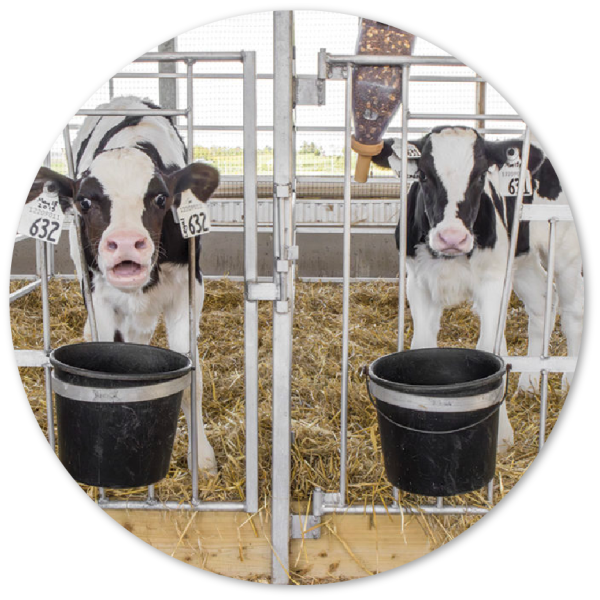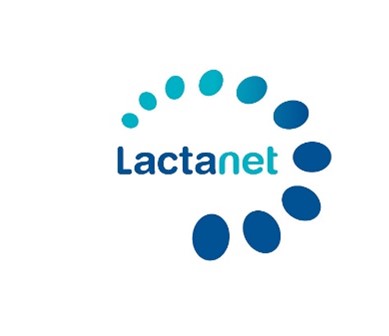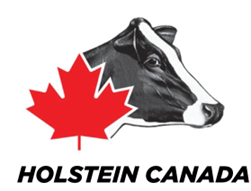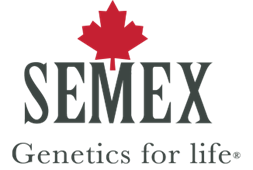Breeding strategies for optimum sustainable genetic progress in Canadian dairy cattle
Complete

Project Overview
The development of novel traits (e.g., feed efficiency, methane emission, etc.), new genotyping technologies (e.g., whole genome re-sequencing), and novel tools (e.g., machine learning, precision livestock data collection, artificial reproductive technologies, etc.) are advancing at an unprecedented rate. This research addressed the use of these new technologies to ensure sustainability, genetic diversity, and to further improve production efficiency.
What Did the Research Team Do?
Examined strategies for breed improvement: Researchers analyzed and compared the benefits of various strategies and novel tools for breed improvement.
Investigated the potential of novel phenotypes: Explored phenotypes, such as traits involving health, fertility, environmental efficiency, and animal activity.
Explored the impact of management strategies on reproduction: Investigated the potential use of calf health records in breeding programs and the effect of artificial reproductive technologies on fertility traits.
Examined pipelines for selection in dairy breeding programs: Particularly those for data collection via precision livestock tools like rumination or activity collars, calf feeding centres, or calf activity monitors.
What Did the Research Team Find?
- Developed a tool for looking at correlations between all genetically evaluated traits in Canadian Holsteins. https://cgil.shinyapps.io/correlations/
- The use of timed artificial insemination (AI) biases genetic evaluations of fertility traits in dairy cattle. Timed AI can mask cows’ fertility performance, resulting in an unfair comparison of treated animals and innately fertile animals. The industry needs a standardized way of recording breeding codes to correct the bias.
- Current data on calf health suggests that an increasing number of farms are recording calf disease events (i.e., respiratory illness and diarrhea). Lactanet has taken over these results and will introduce calf health into the national breeding program by next year.
**Scroll down for project communication outputs**
Principal Investigators
Christine Baes
University of Guelph
Co-Investigators
Flavio Schenkel
University of Guelph
Getu Hailu
University of Guelph
Angela Canovas
University of Guelph
Key Words
- Genomic technologies, phenotypes, breeding values, novel traits
Period: 2018-2023
Budget: $908,723
Last Updated: January 10, 2024
Note: As per the research agreement, aside from providing financial support, the funders have no decision-making role in the conduct of the studies, data collection, and analysis or interpretation of the data. Researchers are independent in conducting their studies, own their data, and report the outcomes regardless of the results. The decision to publish the results rests entirely with the researchers.
PROJECT COMMUNICATION OUTPUTS

PODCAST
LISTEN
TRADE PUBLICATION
READ MOREPROJECT PUBLICATIONS
-
Campos, I.L., Chud, T.C.S., Oliveira, H.R., Baes, C.F., Cánovas, A., Schenkel, F.S. 2022. Using publicly available weather station data to investigate the effects of heat stress on milk production traits in Canadian Holstein cattle. Canadian Journal of Animal Science 102(2): 368-381. https://doi.org/10.1139/cjas-2021-0088
-
van Staaveren, N., Hyland, E., Houlahan, K., Lynch, C., Miglior, F., Kelton, D., Schenkel, F.S., Baes, C.F. 2023. Recording of calf health for potential use in breeding programs: A case study on calf respiratory illness and diarrhea. Canadian Journal of Animal Science. 103(2): 192-203. https://doi.org/10.1139/cjas-2022-0112
-
C. Lynch, F S. Schenkel, N van Staaveren, F Miglior, D. Kelton, C F. Baes. 2023. Investigating the potential for genetic selection of dairy calf disease traits using management data. J. Dairy Sci. https://doi.org/10.3168/jds.2023-23780
-
Oliveira Junior, G. A., Schaeffer, L.R., Schenkel, F., Tiezzi, F. and Baes, C.F., 2021. Potential effects of hormonal synchronized breeding on genetic evaluations of fertility traits in dairy cattle: A simulation study. J. Dairy Sci. 104(4): 4404-4412. https://doi.org/10.3168/jds.2020-18944
-
Oliveira Junior, G.A., Schenkel, F.S., Alcantara, L., Houlahan, K., Lynch, C. and Baes, C.F., 2021. Estimated genetic parameters for all genetically evaluated traits in Canadian Holsteins. J. Dairy Sci.104(8): 9002-9015. https://doi.org/10.3168/jds.2021-20227
-
Alcantara, L.M., Schenkel, F.S., Lynch, C., Junior, G.O., Baes, C.F. and Tulpan, D., 2022. Machine learning classification of breeding protocol descriptions from Canadian Holsteins. J. Dairy Sci. 105(10): 8177-8188. https://doi.org/10.3168/jds.2021-21663
-
Lynch, C., Junior, G.O., Schenkel, F.S. and Baes, C.F., 2021. Effect of synchronized breeding on genetic evaluations of fertility traits in dairy cattle. J. Dairy Sci.104(11): 11820-11831. https://doi.org/10.3168/jds.2021-20495





